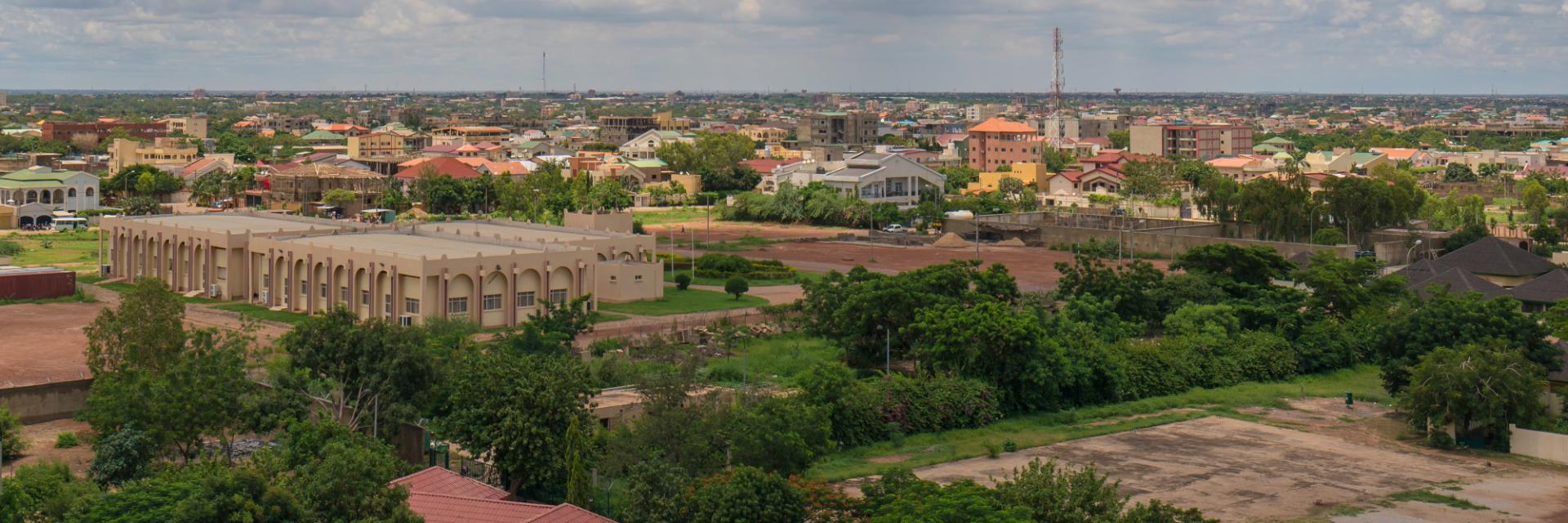Ouagadougou (Burkina Faso), 23 August 2024 (ECA) - As part of the implementation of the African Union's Roadmap on " the demographic dividend through investment in the youth", the Sub-Regional Office for West Africa of the United Nations Economic Commission for Africa (SRO-WA/ECA) in partnership with the Ministry of Economy, Finance, and Planning, is organizing, from August 26 to 27, 2024 in Ouagadougou, a National Policy Dialogue with parliamentarians and policy decision makers on Budgeting Sensitive to Demographic Dividend (BSDD) in Burkina Faso,.
The main objective of this Dialogue is to present to policy decision-makers and parliamentarians the technical results of BSDD achieved by Burkina Faso, so that the country’s 2025 budget is sensitive to the demographic dividend. This national policy dialogue will also strengthen the capacities of parliamentarians in examining and analyzing the draft finance bill through the lens of the demographic dividend, as well as the operationalization and institutionalization of the BSDD approach in the budget cycle in Burkina Faso.
This initiative is timely to accelerate the capture of the demographic dividend, which is essential for inclusive, transformational, and sustainable economic development of the country.
According to estimates from the National Institute of Statistics and Demography (NISD, 2022), Burkina Faso is experiencing rapid population growth, with an annual rate of about 3% and a fertility rate of 5.4 children per woman, exceeding the regional average of 4.5 in 2022.
In addition, more than 45.3% of the population is composed of young people under the age of 15. The economically active population (15-64 years) represented 51.3% of the total population, while the demographic dependency ratio was estimated at 95% in 2019. This means that 100 working-age adults are caring for 95 dependents, i.e., young people under 15 and/or elderly people over 65 years.
This demographic profile has implications for wealth creation, inclusive and sustainable development, and the country’s ability to adequately meet the socioeconomic needs of its population, especially the needs of young people in terms of education, health, and employment.
Therefore, it is necessary to allocate public resources effectively and efficiently to sectors that are conducive for harnessing the demographic dividend, namely education, health, and the creation of decent jobs for young people (both girls and boys), through the national budget, the main tool for implementing Burkina Faso’s development objectives.
The implementation of the national roadmap for Budgeting Sensitive to Demographic Dividend in Burkina Faso has strengthened the capacities of Experts and Government Officials responsible for budget formulation and execution, in order to support the integration of the BSDD approach in the budget cycle for the 2025 fiscal year.
The national policy dialogue on the BSDD will feature participation from members of the Transitional Legislative Assembly (TLA), alongside policy decision-makers from the line ministries and sectoral institutions engaged in harnessing the demographic dividend.
For further information, please contact
Mr. Tahirou Gouro,
Communications Officer
SRO-WA/ECA
Email gouro2@un.org

